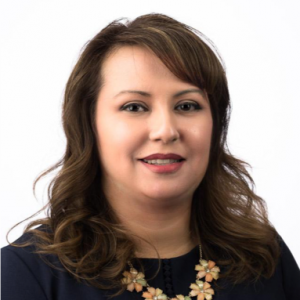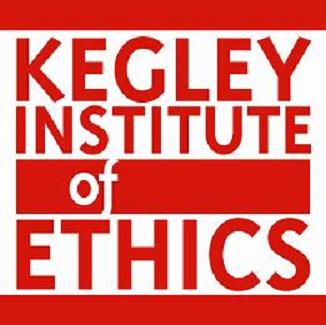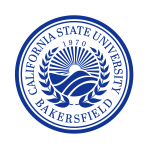Speaking Our Values: Educating for Diversity and Social Justice

Submitted by 2021-2022 KIE Faculty Fellow, Dr. Adriana Cervantes-Gonzalez
While attending grade school, I developed an awareness of the differences I exhibited regarding culture and language from most of my school peers and teachers. As a multilingual learner and critically conscious educator I am eager to share with anyone who is willing to listen about my lived experiences, as a person of color, as a Latina. As a first-generation college graduate and now first-generation faculty member at CSU Bakersfield, one of my favorite quotes comes from one of Spain’s greatest 20th-century Poets, Antonio Machado, whose work embodies a spiritual and ethical emphasis; “Caminante no hay camino, se hace el camino al andar” – which translates closest to “Traveler, there is no path. Your path is made by walking”.
Growing up during an era where speaking Spanish, or any language other than English was frowned upon and viewed as a deficit, I have made it my life’s mission to ensure that no student encounters this same experience. There were many educators along my path who stood up for me and my immigrant family, who honored and affirmed our culture and our language. When my identity was affirmed it was then that I started to believe that school was a place for me and a place where I belonged. When joining the faculty at CSU, Bakersfield, I knew I could relate to many of the students we serve in the immediate and broader Central Valley region because of these lived experiences. Essentially, my Kegley Institute of Ethics Faculty Fellowship Project – “To Speak or Not to Speak: On Sharing Your Truth” – was inspired by these preceding experiences in K-12, higher education, and the profession. What I found growing up is that I was not seeking justice in a foreign country, but rather desiring justice in mine. I was eager to have the same opportunities as everyone but I knew early on I had to work my hardest to learn and acquire the English language, to master it, all while valuing myself and my beautiful Mexican heritage. To this day the struggle continues after being an educator for 22 years!
As an educator in both K-12 and higher education spaces, it is my moral and ethical imperative to foster inclusive classroom contexts and affirm experiences for all the students I serve. It is for these reasons that the KIE Faculty Fellowship was significant when it came to receiving support for my project, and it was an honor to be selected.
The initial thoughts for this project transpired when I attended one of the Ethics Across the Curriculum workshops hosted by the Kegley Institute of Ethics in October of 2020, where Dr. Mary Gentile (University of Virginia Darden School of Business) shared her ground-breaking approach for values-driven leadership. Drawing on actual experiences of persons voicing and acting upon values in workplace settings, her approach challenges participants to consider what conditions empower them to effectively voice their values in their work settings and which actions (or lack of actions, lack of support, etc.) tend to inhibit speaking up in ethically challenging situations. The focus on this ethical implementation asks: “What if I were going to act on my values? What would I say and do? How could I be most effective?” Taking the existing course and structure while adding a new dimension by including the Giving Voice to Values Framework by Dr. Mary Gentile was a perfect opportunity to take things to another level. Throughout my career, I found myself asking similar questions, pondering why, in certain instances, I would speak up and act on my values while in others, I would not.
My adaptation of Gentile’s approach is currently being implemented in a course I teach for the Master’s Program in Curriculum and Instruction at CSUB, titled: “Teaching for Diversity and Social Justice,” where ethical dilemmas are discussed with fictional case study scenarios within educational contexts. Graduate students participate in the learning process through self-reflection and scripted exercises where they not only practice but share with their peers in guided discussions how they would go about their value-based decisions. The case study discussions are charged with lots of emotion and seem to be among the students’ favorite class activities. When students begin the course, they typically enter a discussion of creating inclusive spaces in diverse context with a fictional case study. For example there was an alarming level of fear and anxiety among children of color and inflaming racial and ethnic tensions in the classroom following the 2016 presidential election. In one of the fictional case studies, during playtime in a K-8 school the classroom a teacher notices that students were building a wall and when asked about their creation, they said it was, “to keep the Mexicans out” (being very proud of what they had engineered). The teacher had to quickly decide how she would intervene (act) while protecting her immigrant students from harm. At first glance, as graduate students work through the discussion in our course, they discover that given the diverse lived experiences everyone brings to the table and heightened tensions, oftentimes in a given scenario it warrants an educator to speak up and intervene, especially against hateful rhetoric. The challenge is working towards maintaining a supportive and inclusive environment for all students, especially when values conflict. This process is always easier said than done, as this task is multilayered and complex given the current social-political context of schooling, which is anything but neutral. I am looking forward to sharing more as this project continues to develop, as ethics is integral to our work as educators.
We continue to work in a profession that is making an intentional effort towards diversifying the teacher workforce to one that is more representative of the student demographics we serve in California. It is critical to continue to find ways to let all students, and especially our students of color know that teachers of color matter, that teacher diversity matters, and that as a collective we affirm these stances as critically conscious and ethically responsive educators. Paulo Freire, author of Pedagogy of the Oppressed and a leading advocate of the critical pedagogy movement states, “The educator has the duty of not being neutral”. Our students are more than half of the curriculum, and, thus, co-creating inclusive spaces for praxis is a key tenet in teaching for diversity and social justice.





